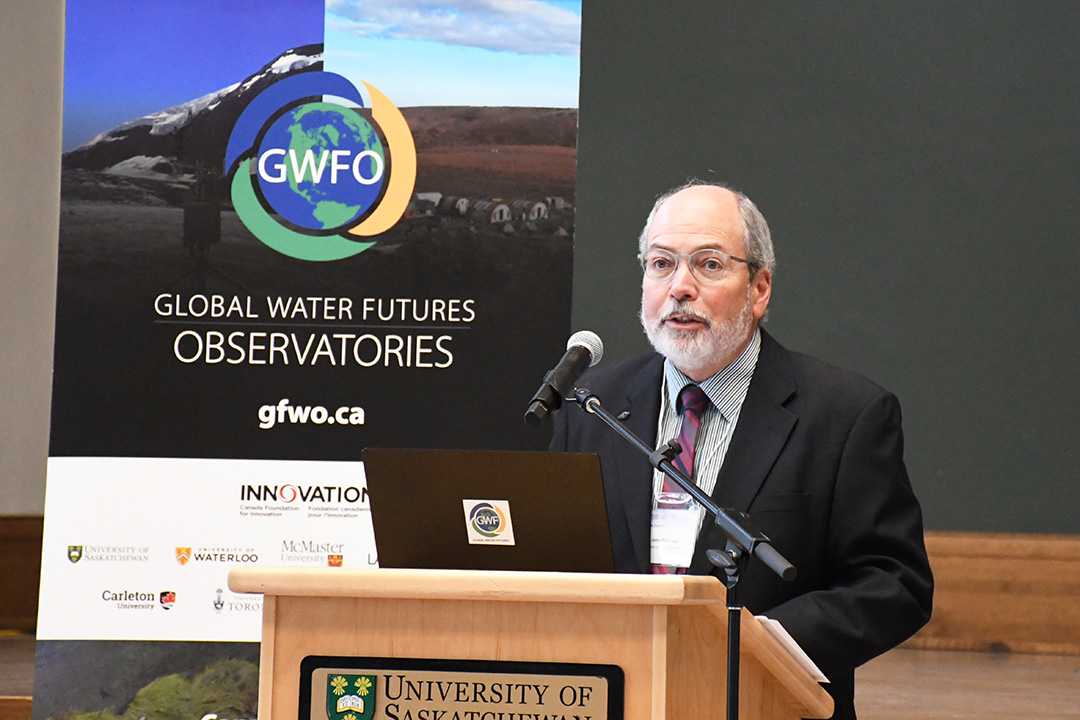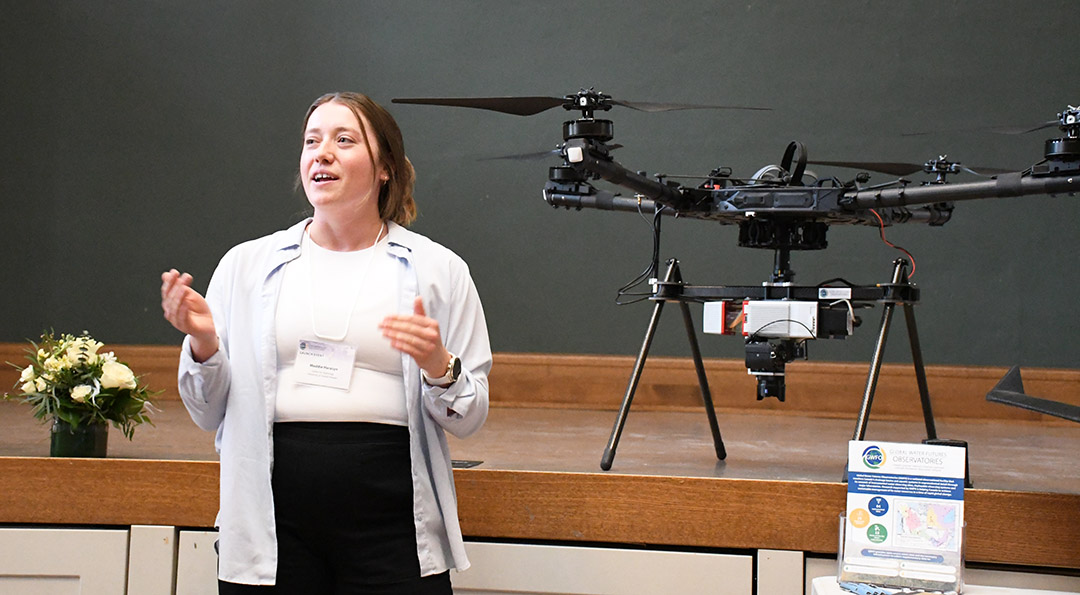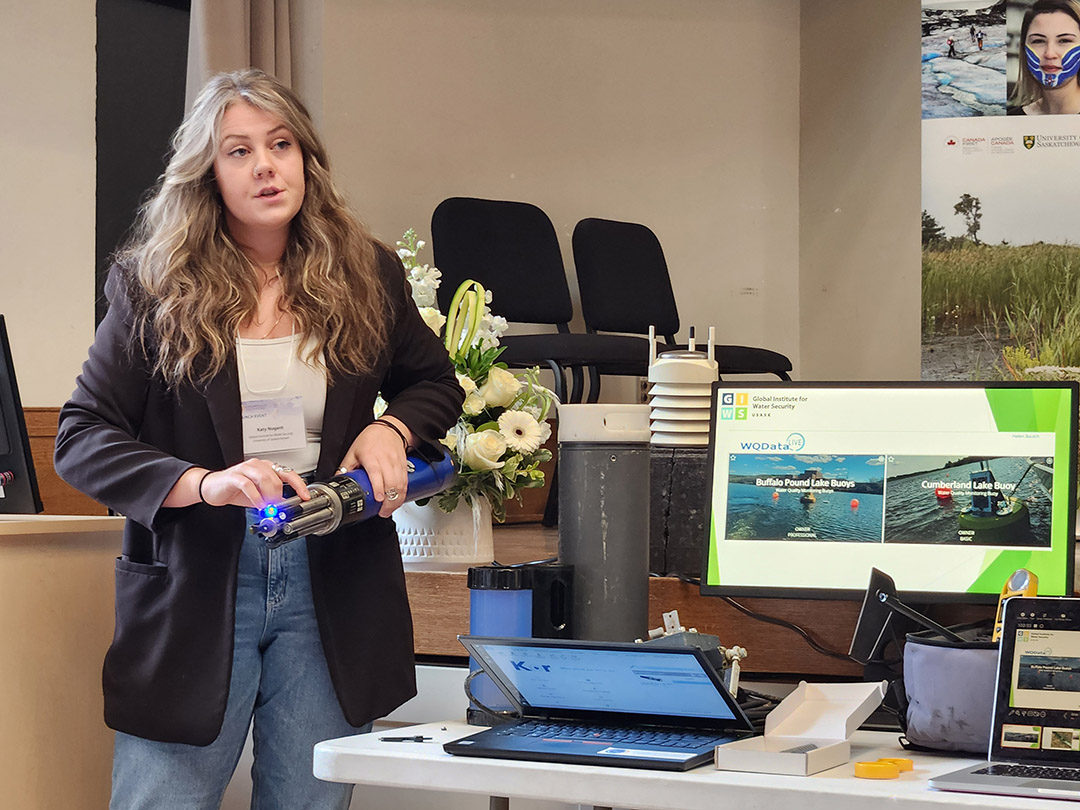
USask celebrates launch of Canada’s freshwater monitoring network
The network involves experts from universities across Canada and includes stations and observatories in almost every province and territory.
By University CommunicationsLed by USask in partnership with eight other Canadian universities, The Global Water Futures Observatories (GWFO) is a network of freshwater monitoring and observation stations placed strategically across Canada.
GWFO consists of 64 instrumented basins, lakes, rivers and wetlands, 15 deployable measurement systems and 18 state-of-the-art water laboratories which collectively serve as a national scientific freshwater observation network for Canada’s critical freshwater systems.
The April 17 event celebrating the launch of the GWFO was hosted by USask and the Global Institute for Water Security (GIWS), with additional gatherings at the University of Windsor and the University of Waterloo set to join virtually.

Water experts, government officials, and GWFO researchers from USask, the University of Windsor, the University of Waterloo, Wilfrid Laurier University, and McMaster University were scheduled to present and provide an overview of GWFO facilities during the launch event.
The GWFO initiative received more than $15 million from the Canada Foundation for Innovation’s Major Science Initiative in 2022. The observatory network will have the infrastructure to develop and provide consistent open access water data that will help provide a water early warning system and inform models and policy decisions surrounding water security and sustainability.
These monitoring stations will support Canadians in finding solutions for water issues regarding climate change, sustainable management of water resources, freshwater for communities, energy and agriculture, ecosystem conservation and much more.
The GWFO monitoring sites are scattered across both remote and populous locations in Canada, from within the Great Lakes to atop glaciers and mountaintops. The network is already providing cutting-edge data to researchers and has helped inform water prediction models used by the United Nations.

“USask experts have set a precedent of being the best in Canada when it comes to water research. We look forward to seeing the endeavours of our water researchers with the support of GWFO resources as they continue to find creative ways for better use of water resources to serve Saskatchewan and Canada’s growing population and economic enterprise, and be what the world needs in this vital field.”
- Baljit Singh (PhD), USask Vice-President, Research
“The security and sustainability of our water resources is an increasingly important discussion, given changes we are experiencing, particularly in water extremes. The GWFO allows us to have critical, consistent data to inform how we protect and manage those resources. We look forward to GIWS and GWFO continuing to inform our water future in Saskatchewan, Canada, and beyond.”
- Corinne Schuster-Wallace (PhD), Director of GIWS
“The funding provided to GWFO shows our government recognizes the importance of critical and informed research into our water resources. The ongoing efforts of those running GWFO facilities, or using its data, will play a key role in determining the security and sustainability of Canada’s freshwater.”
- John Pomeroy (PhD), Director of GWFO
Together, we will undertake the research the world needs. We invite you to join by supporting critical research at USask.

